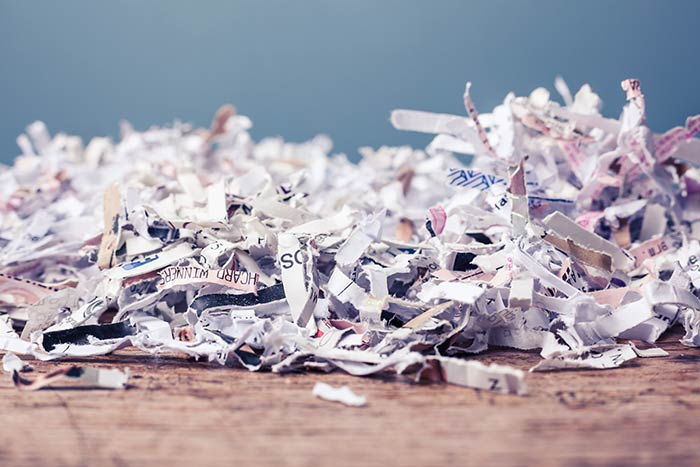Document Shredding Laws in Georgia and Florida
Secure Document Shredding at A1 Shredding & Recycling
The increase in identity theft crimes has resulted in the enactment of several federal laws designed to protect consumers’ private information. Some states have also enacted laws, including the states of California, Wisconsin and Georgia. In the state of Georgia, the primary law all businesses should concern themselves with is the Georgia Information Privacy Act SB475.
Georgia Information Privacy Act SB475
Georgia State Bill 475 was passed to insure all companies properly destroy any document that contains individuals’ private information. Specifically, section 10-15-2 states:
A business may not discard a record containing personal information unless it:
- Shreds the customer´s record before discarding the record;
- Erases the personal information contained in the customer´s record before discarding the record;
- Modifies the customer´s record to make the personal information unreadable before discarding the record; or
- Takes actions that it reasonably believes will ensure that no unauthorized person will have access to the personal information contained in the customer´s record for the period between the record´s disposal and the record´s destruction.
In addition to Georgia’s law, the following Federal Laws also require businesses to properly destroy any document containing personal information.
FACTA
The Fair and Accurate Credit Transactions Act of 2003 also known as the FACT Act was signed into law on December 4, 2003. The Act amends the Fair Credit Reporting Act (“FCRA”). The Act contains a number of provisions intended to combat identity theft and consumer fraud and related crimes. Specifically, the act requires the destruction of PAPERS CONTAINING CONSUMER INFORMATION. Virtually every business or organization is bound by this law.

The DISPOSAL RULE
Sec. 682.3 Proper disposal of consumer information.
(a) Standard. Any person who maintains or otherwise possesses consumer information, or any compilation of consumer information, for a business purpose must properly dispose of such information by taking reasonable measures to protect against unauthorized access to or use of the information in connection with its disposal.
(b) Examples. Reasonable measures to protect against unauthorized access to or use of consumer information in connection with its disposal would include:
(1) Implementing and monitoring compliance with policies and procedures that require the burning, pulverizing, or shredding of papers containing consumer information so that the information cannot practicably be read or reconstructed.

HIPAA
Health Insurance Portability and Accountability Act (HIPAA), was enacted in 1996 and includes provisions intended to safeguard the privacy of patient health records. HIPAA is a significant piece of legislation with onerous penalties.
GLB (Gramm Leach Bliley)
Gramm Leach Bliley (GLB) is another federal law with a much broader scope than HIPAA. This law was designed to compel financial institutions to “respect the privacy of its customers and to protect the security and confidentiality of those customers’ non-public personal information.” This language suggests that paper documents containing such personal information should also be protected when in use and safely destroyed when no longer current and usable.
